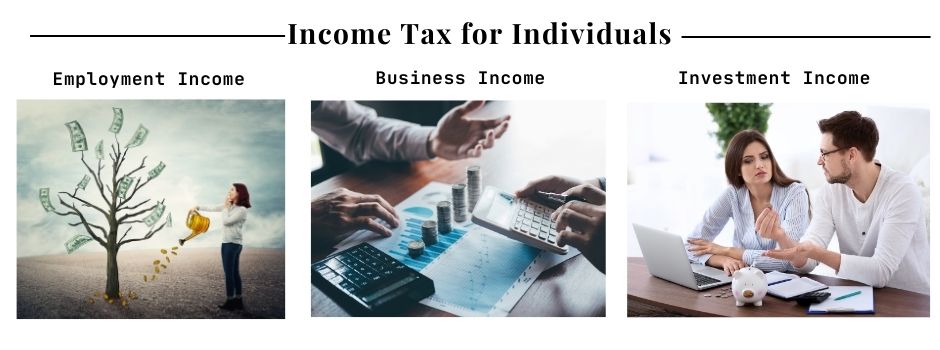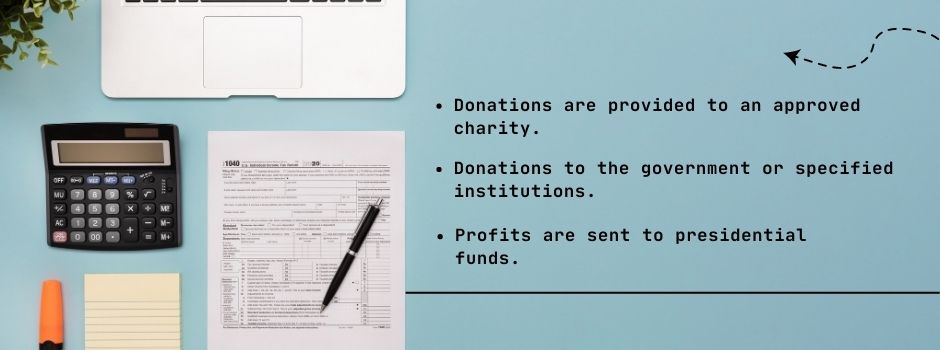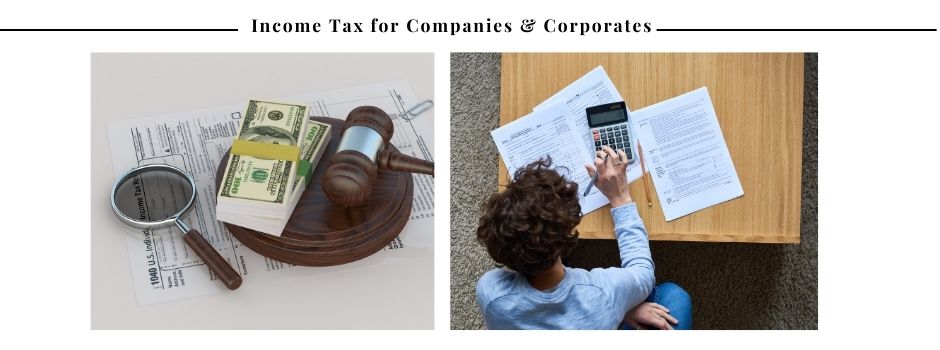Sri Lanka is set to implement a number of changes to its income tax system in 2023. These changes are expected to have a significant impact on individuals and businesses, and it is important for taxpayers to be aware of what to expect. In this blog post, we will outline some of the key changes to the income tax system in Sri Lanka that are expected to take effect in 2023.

What is Income Tax?
Income tax is a kind of tax charged from individuals and organizations on the subject of income or profits earned by them from both inside and outside of the country.
Every government considers these tax incomes are the major inter-country earnings. The Government uses those taxes for many costs such as infrastructure development projects, public services like health, education & civilians life improvement programs.
Income tax is charged according to the overall income of an individual or an establishment. It has been restricted to a certain eligible amount for settling the tax.
Income Tax for Individuals.
Every citizen and resident earning in Sri Lanka is being charged Income Tax according to how much they’ve earned in a total of a month. If you have 500,000 LKR surpassed monthly earnings, you’re liable to pay tax for your income. The code of the Inland Revenue Department (IRD) of Sri Lanka classified the tax payable sources of income.

Employment Income.
Total gains and profits earned from employment for a year of assessment by an individual.
Business Income.
Income or Profit from a person’s own conducted businesses for a year of assessment.
Investment Income.
A person’s income from investments he/she funded for a year of assessment.
Other Income.
A person’s income from various other sources for a year of assessment. Anyhow it does not include the profits from ordinary and non-recurring channels.
Tax Paying Eligibility for the Residents and Non-Residents.
People who claim themselves as a resident of Sri Lanka are chargeable with income tax according to their income from Sri Lanka and income generated by them from outside of Sri Lanka. In the same way, non-resident people in Sri Lanka are chargeable with income tax for the profits only derived from Sri Lanka.
The taxable income of a resident or non-resident individual for a year of assessment commencing from April 1, 2023, shall be taxed at the following rates.
| Taxable Income | Tax Payable |
| Not exceeding Rs. 500,000 | 6% of the amount in excess of Rs. 0 |
| Exceeding Rs. 500,000 but not exceeding Rs. 1,000,000 | Rs. 30,000 plus 12% of the amount in excess of Rs. 500,000 |
| Exceeding Rs. 1,000,000 but not exceeding Rs. 1,500,000 | Rs. 90,000 plus 18% of the amount in excess of Rs. 1,000,000 |
| Exceeding Rs. 1,500,000 but not exceeding Rs. 2,000,000 | Rs. 180,000 plus 24% of the amount in excess of Rs. 1,500,000 |
| Exceeding Rs. 2,000,000 but not exceeding Rs. 2,500,000 | Rs. 300,000 plus 30% of the amount in excess of Rs. 2,000,000 |
Exceeding Rs. 2,500,000 | Rs. 450,000 plus 36% of the amount in excess of Rs. 2,500,000 |
Sri Lanka provides some flexibility in paying the tax to the IRD. The commission allows both individuals and organizations to pay the entire estimated tax in an installment.
| Installment | Payment Date |
| 1st Installment | On or before the 15th day of the month of August, of that year of assessment |
| 2nd Installment | On or before the 15th day of the month of November, of that year of assessment |
| 3rd Installment | On or before the 15th day of the month of February, of that year of assessment |
| 4th Installment | On or before the 15th day of the month of May, of the next succeeding year of assessment |
| Final Installment | On or before the date that is after six months end, of that year of assessment |
Tax Reliefs for Individuals.
In consonance with the Inland Revenue Act, No 24 of 2017 the tax regulations give exemptions for some selected payments. For the following payments, an individual can get a deduction even from the part of his/her tax payable income for that year of assessment.

- Donations are provided to an approved charity.
- Donations to the government or specified institutions.
- Profits are sent to presidential funds.
Tax Reliefs:
Personal Relief
Sri Lankan citizens are eligible for a personal relief of LKR 3 mn annually.
Anyhow this won’t apply to those who’re presenting as trustees, executors, or a liquidator.
Expenditure Relief
Individuals can get an exemption of up to LKR 1 mn for the following expenditure in a year of assessment.
- A health outlay and payment for medical insurance.
- Educational expenses for the beneficent or for their children.
- Contributions for approved pension schemes.
- Expenses for purchase of the
- Interest expenses for housing loans.
Rent Relief
Residents are eligible for the 25% deduction from the total rental income from an investment asset for the year of assessment.
Tax Paying Eligibility for the Residents and Non-Residents.
People who’re claiming themselves as a resident of Sri Lanka are chargeable with income tax according to their income from Sri Lanka and Income generated from outside of Sri Lanka. In the same manner, People who’re being considered a non-resident in Sri Lanka are chargeable with income tax for the profits they’ve earned only from inside Sri Lanka.
An individual who is a resident in Sri Lanka for a year of assessment or who’s a non-resident in Sri Lanka but is a citizen of Sri Lanka will have the following relief on their income tax:
- 500,000, for each year of assessment prior to January 1, 2020
- 3,000,000, for each year of assessment commencing on or after January 1, 2020
NOTE: An individual with the status of trustee, receiver, executor or, liquidator won’t be applicable for those exemptions.
Income Tax for Companies & Corporates.
Taxing percentage varies based on the industry and profits generated. Medium Enterprises with LKR 500 million annual turnovers are expected to pay lower taxes. The following list shows the tax rates for corporates.
| Company Type | Rates |
| Small and medium enterprises (SME) | 14% |
| The company provides construction services | 14% |
| The company provides educational services | 14% |
| The company running an agro-processing | 30% |
| The company engaged in promoting tourism | 14% |
| The company provides healthcare services | 30% |
| Profits from Manufacturing | 30% |
| IT & Services | 30% |
| Profits from a business of betting and gaming, liquor and tobacco | 40% |
| Banks & Insurance | 30% |
| Construction companies | 30% |
| Exports | 30% |
| leisure activity businesses | 30% |
| Renewable Energy | 30% |
| Retail | 30% |
Conclusion
All the tax rates mentioned in the above article are applicable for the assessment year starting from the 1st of April 2023. Consider paying your income tax to avoid unlikeable charges from the Inland Revenue Department. Not only for that but also for a stand along with the country’s development. Let’s help to rebuild the country with a stable economy as one nation.


Peter Starmer
Thank you for the excellent overview and for publishing those updates, it was very useful. We have used the rates you published to update our tax calculator fr Sri Lanka for the 2023 yax year.Thank you again. We wish you the best of health and success in 2023.
Nigetha Thurairaja
Dear Peter,
You’re most welcome! I’m glad to hear that our overview and updates were helpful in updating your tax calculator for the 2023 tax year in Sri Lanka. If you have any other questions or need further assistance, please don’t hesitate to ask. Thank you for your well wishes and I wish you all the best in 2023 as well!
Dr Chandra
There is no mention of the tax (which has to deducted & paid to the department ) by the companies when they rent or lease a building.
Please give the present situation of this rent tax?